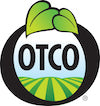Is There Such a Thing as the Perfect Protein?

Humans need protein in their diets. From our first sips of mother's milk all the way through our hopefully long lives, the average adult requires anywhere from 40-50 grams of protein per day (and pregnant women can require more than 70 grams per day!). The symptoms of not having enough protein in our diets can include weakness, swelling, depression, abnormal heart rate and even death. And the effects of too much protein: kidney problems, inflammation conditions and even cancer. It's a necessary balance indeed.
Protein builds muscles, bones, cartilage, skin and blood. We'd be bald and have no need for mani/pedis without protein. It repairs tissue, creates enzymes and hormones. Unlike some other nutrients, our bodies can't store excess protein, so we need to replenish it regularly.
Protein is made up of chains of amino acids. There are 22 "standard" amino acids, of which nine cannot be produced in the body and therefore must come from food. Our amino acid requirements change over time. As children, we often need higher levels of cysteine, tyrosine, taurine and arginine; and as we age, foods high in leucine and beta-alanine may be helpful.
Despite the well-known human protein requirements, we often seem to struggle with the question "which protein source is best?" Well, the answer is not exactly easy. With a world full of meat-eaters, vegans, and everything in between, we know that various sources of protein can satisfy our daily needs.
Animal products from red meat to fish, milk, eggs and even insects (a growing trend in low-impact but highly nutritious food), all contain protein. Vegetable proteins come from a number of sources, too: beans, nuts, legumes, grains, nutritional yeast, spirulina, blue green algae, and grasses like wheat and barley. The hemp seed is one of the most protein-rich foods available with one 100 gram serving containing as much as 50 grams of protein!
When people hear the term "whey" they often think about protein-drinking-iron-pumping-men-of-unusual-strength. And while that may be a not so off-base reality for some, there are plenty of regular-sized people who include whey, a dairy product, as part of their regular protein intake as well.
While there's no denying that meat, eggs and dairy products contain lots of protein, they can also contain lots of saturated fat. And, if your animal products are not coming from an organic source, you're likely getting genetically modified organisms, antibiotics, growth hormones and other questionable ingredients that the animals are routinely fed.
Fish has become the darling of the 'heart healthy', good fat protein sources. And this is also true. Wild caught fish can offer an abundance of benefits. But, like non-organically raised meat, pork or poultry, farmed fish can contain the addition of chemicals that pose notable health risks. And be careful, because the wild-caught fishing industry is now also overfishing some species vital to our ocean and river eco-systems. So if you are eating fish, choose sustainably caught options. The Monterey Bay Aquarium offers an easy guide to help you find the best fish options.
Plant proteins also offer another important dietary benefit: the addition of fiber. Because many Americans eat too much processed food, daily fiber requirements can fall short, leading to digestive issues and heart disease. Like protein, fiber is a macronutrient, meaning we need to get it—every day—and in rather large quantities.
Regardless of your dietary preferences, many experts agree that the "best" protein is a well-rounded variety. If you subscribe to that routine, you should find the benefits of a balanced protein diet provide you with many delicious and nutritious options, hopefully for years to come.
Leave a comment
Comments will be approved before showing up.


